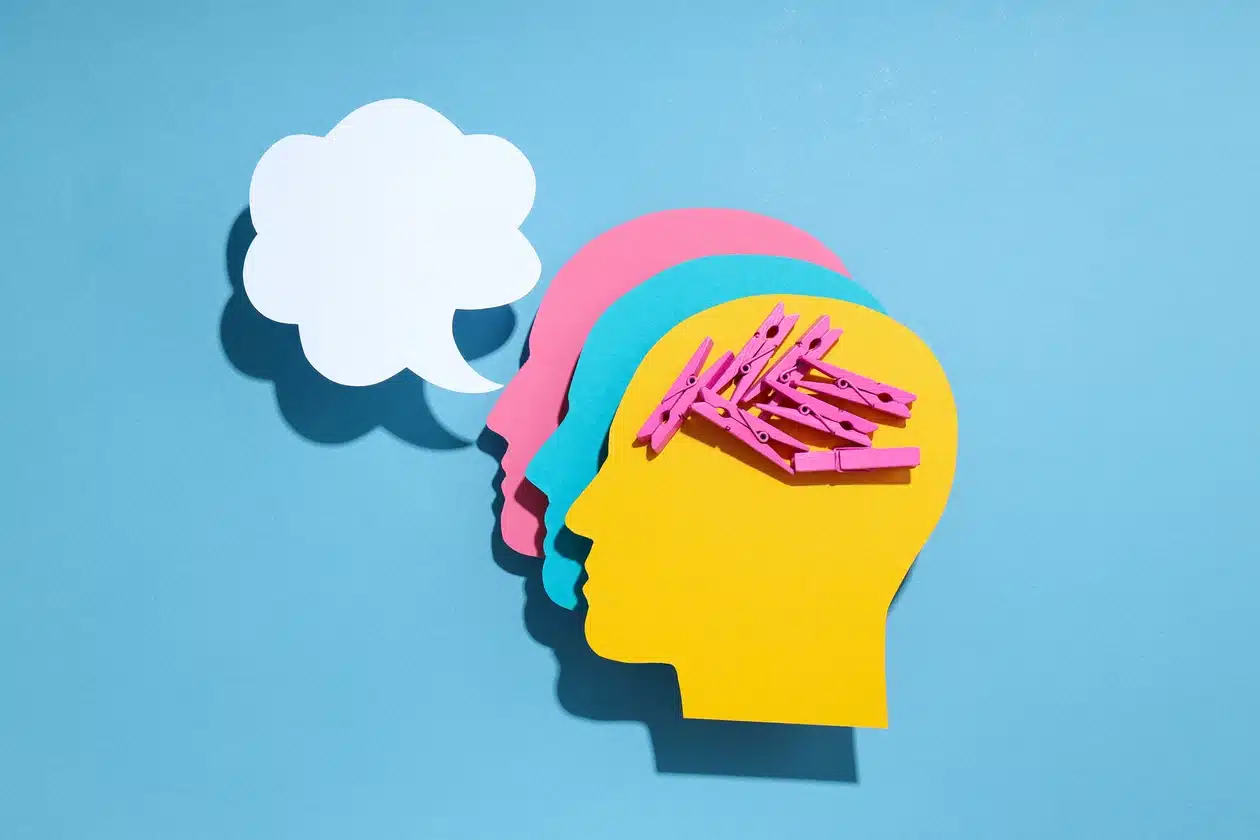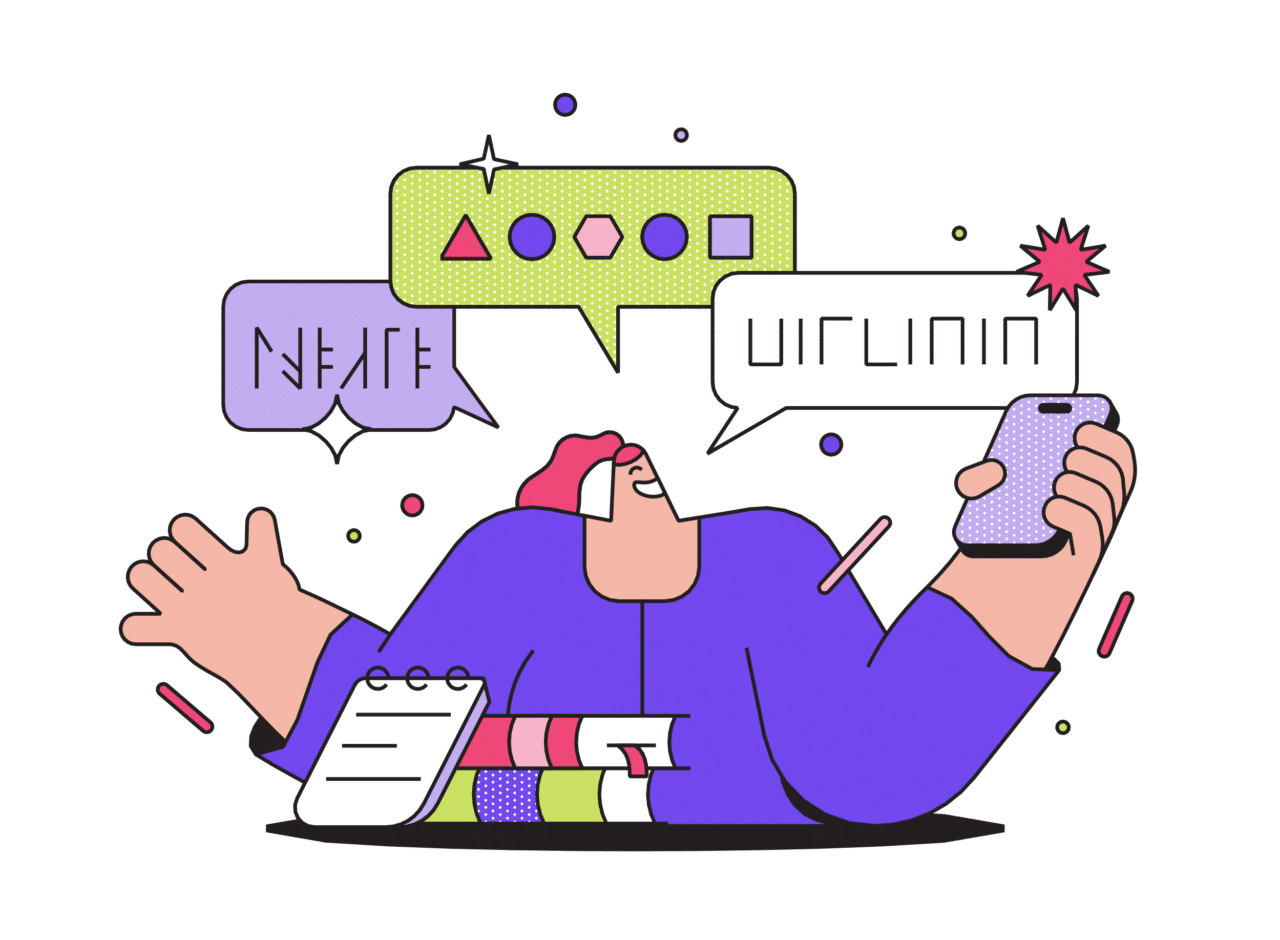
How Language Shapes Our Thoughts and Perceptions
Language is more than just words; it’s a powerful tool that influences how we see the world. Language is a lens through which we view and interpret reality. It can even influence our personality. Our linguistic habits influence how we think, what we pay attention to, and ultimately, how we perceive the world. So it’s important to understand how language shapes our thoughts and perceptions.

Importance of Language
Understanding how important language is can’t be emphasized enough. It really shapes how we think and see things. It’s not just about talking; it’s deeply tied to how our minds work. It affects how we understand things and make sense of our experiences. Therefore, language shapes our thoughts and perceptions.
When we learn new words, it opens up new ways of looking at stuff. The way we talk also reflects our culture, showing what we think is important. Even grammar and sayings affect how we make decisions. Like in Japan, they have “wabi-sabi,” which is about seeing beauty in imperfection. Knowing this shows how much language affects our thoughts and views.
Sign up for our offers
Exclusive discounts on your course with Cactus directly on your inbox!
Language role in shaping human cognition
Language plays a fundamental role in shaping human cognition. It’s a medium through which thoughts, ideas, and knowledge are expressed, shared, and transmitted. Through language, humans can organize their thoughts, construct complex narratives, and develop abstract reasoning abilities. In turn shapes our cognitive processes such as problem-solving, decision-making, and memory retention. Moreover, language enables the development of cultural identities, social relationships, and collective knowledge. It’s the base to foster cooperation, innovation, and cultural evolution. Thus, language is a cornerstone of human cognition, shaping the way individuals perceive and interact with their environment.
Language shapes how we categorize, and understand the world around us. Through language, we conceptualize abstract ideas, construct narratives, and formulate complex thoughts. Different languages offer different and unique perspectives. Nuances in vocabulary, grammar, and syntax affect our cognitive processes and problem-solving strategies. Moreover, bilingual individuals navigate multiple linguistic frameworks, which can lead to heightened cognitive flexibility and divergent thinking. Overall, language serves as a powerful tool that both reflects and moulds our cognitive processes.

How Language Impacts Thinking
The linguistic relativity hypothesis and its significance
The linguistic relativity hypothesis is also known as the Sapir-Whorf hypothesis. The hypothesis suggests that the structure and vocabulary of a language can shape or influence the way its speakers perceive and think about the world. This theory implies that speakers of different languages may perceive reality differently. This is due to the linguistic constraints and concepts embedded within their native tongues. The significance of this hypothesis lies in its potential to shed light on the intricate relationship between language and cognition. It offers insights into how language shapes our thought processes, cultural perspectives, and interactions with the world.
Through studying linguistic relativity, researchers can deepen their understanding of several areas. It includes human cognition, language diversity, and cultural variations. Ultimately it contributes to fields such as linguistics, psychology, anthropology, and cognitive science.
Cognitive effects on perception and categorization
Language significantly influences perception and categorization. It shapes how we interpret and interact with the world. Through linguistic categories and labels, we organize our experiences, influencing how to respond to different stimuli. Moreover, language can alter perceptual boundaries. Studies show that speakers of different languages perceive colours differently.
For example, in some cultures, there are multiple words for different shades of blue, while in others, they might all be just “blue.” This impacts how people from different cultures see and categorize colours.
Effects of bilingualism and multilingualism
Being bilingual or multilingual can enhance cognitive flexibility and problem-solving skills. This means that people who speak more than one language may find it easier to adapt to new situations and solve complex problems.
There are many benefits to being bilingual. Not only that, but it has been studied the effects and distinctive features of bilingual brains. Bilingual brains are more agile and resourceful particularly on cognitive flexibility and adaptability.

How Language Shapes the Way We Think
Language isn’t just a means of communication—it fundamentally shapes the way we think. Take syntax, for example. The structure of our language influences how we organize our thoughts. Similarly, subtle differences in word meanings can impact how we conceptualize ideas.
Cultural metaphors in language also impact our thinking. For instance, in English, we might say “time is money,” which suggests time is valuable. In other cultures, there might be different metaphors for time, impacting how they perceive it. Some argue that language determines how we see the world, while others think it just influences it. Regardless, understanding different languages is crucial for effective communication today. It helps us connect better with people from diverse backgrounds.
The role of linguistic structure in shaping thought
The syntax of a language significantly influences cognitive organization by shaping how speakers structure and convey their thoughts. Variances in word order, such as subject-verb-object versus subject-object-verb, can lead to distinct cognitive patterns in prioritizing information. For instance, languages with a fixed word order may encourage linear thinking and clarity in expression. Whilst those languages with more flexible structures might foster creativity and ambiguity. Additionally, grammatical features sucg as tense, aspect, and mood contribute to how speakers conceptualize events and relationships. Overall, it shapes how we perceive, organize, and communicate their ideas within a linguistic framework.
Language and culture
Cultural metaphors serve as cognitive scaffolding shaping thought patterns. It offers conceptual framework rooted in a society’s beliefs, values, and experiences. These metaphors provide a lens through which we interpret the world. Cultural methaphors influence perceptions, attitudes, and behaviours.
As examples we have “time is money” in Western societies or “the river of life” in Eastern philosophies. These metaphors not only reflect cultural norms but also mould cognitive processes and shaping communication styles. In this way, cultural metaphors become ingrained in collective consciousness. They subtly shaping how we make sense of reality and navigate social environments.
Importance of linguistic diversity
Understanding linguistic diversity is paramount for effective communication. It fosters inclusivity, respect, and empathy in interactions. It enables individuals to appreciate different cultural perspectives, allowing for clearer and more nuanced exchanges. Moreover, proficiency in diverse languages facilitates bridging gaps between communities. A great way to mitigate misunderstandings. Embracing linguistic diversity also promotes social harmony, equality, and global interconnectedness.

Next Steps to Learn a Language
As a result, language isn’t just about talking – it shapes how we think and see the world. Understanding how language shapes our thoughts and perceptions is vital for better communication. Understanding and respecting language differences helps us connect better with diverse people.
If you are interested in improving your language skills, discover our language courses. Courses are immersive, with qualified teachers and in small groups. Start learning a language online or in one of our schools across the UK. Start your free trial.

 French
French German
German Italian
Italian Spanish
Spanish Arabic
Arabic Cantonese
Cantonese Czech
Czech Croatian
Croatian Danish
Danish Dutch
Dutch English
English Greek
Greek Hebrew
Hebrew Hindi
Hindi Japanese
Japanese Korean
Korean Norwegian
Norwegian Polish
Polish Portuguese
Portuguese Russian
Russian Swedish
Swedish Thai
Thai Turkish
Turkish Ukrainian
Ukrainian